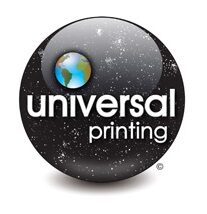We’ve said it before, and will probably say it again: Technology changes EVERTHING! This is especially true in the field of Graphic Design. The growth of personal computers and desktop publishing software made EVERYONE an amateur graphic designer. Now, the internet has become a wealth of knowledge and resources; especially for people looking for photos. This brings us to a VERY important topic: Image Use and Copyright Law.
Are you clear about what value you bring to your clients?
In our previous blog post, we started our New Year’s Resolution of “Understanding Resolution” (if you missed it, just click the link to check it out.) This time, we’re helping you put this information to good use by helping you get better images from the very beginning, starting with your Digital Camera. Maybe you just got a new one over the Holiday Season, or perhaps you’ve had one for a while now. It’s never too late to review your settings and make sure that your getting the best your camera can offer.
A few months ago we posted a 2-part Blog about Choosing the Right Paper but we still get a lot of questions about one VERY confusing topic: Paper Weight and Thickness.
Our previous blog (6 sites EVERY Graphic Designer or Printing Professional should know) was so well received, that we decided to share five MORE. Check out these sites for even MORE tools and information!
QR codes are quickly gaining traction here in the US. With almost 1/3 of Americans (ages 12 and up) carrying smartphones, and given the spontaneous and instantaneous nature of the web, it’s very little surprise that QR codes are becoming accepted at an amazing rate! Add to this, the viral nature of most marketing strategies, and you get an even broader appeal. Heck, even the US Postal Service sees the QR code potential, and is planning to run a special Mobile Barcode Promotion later this summer.

We’ve noticed over the past several years that some of our clients have tried the offshore printing gig (like in China, for example.) As far as we can tell, they have all come back to buying locally with someone they can trust, have a face to face conversation with, and avoid experiencing any of the challenging cultural differences.
This experience has been both rewarding and frustrating for us. Frustrating because we usually don’t find out until a client has already printed overseas, been burned or let down, and then come back. Rewarding because they do come back, with similar stories and a realization that the trust, professionalism, quality and reliability we provide as a “given”, which they had previously taken for granted, has real value to their companies.
These six websites are LOADED with great tools and information. If they aren’t bookmarked in your browser yet, they SHOULD be!
Let’s face it… NOBODY enjoys proofreading. Ok, maybe there’s a rare few that get a kick out of it from time-to-time, but nobody really “likes” it. Still, it’s a very important step in any graphic design project or page layout process, and one that sometimes gets overlooked. It’s easy to “pass the buck” on this, and assume someone else should have proofread; but anyone involved in putting files together for printing should take a moment to proof their work. Granted, I’m only talking about proofing for completion and accuracy. Grammar and punctuation can be addressed in someone else’s blog! For us, we just want to help get it on press quickly, and address any concerns BEFORE the project is plated and printed. These tips will help make your proofreading process a little easier.
